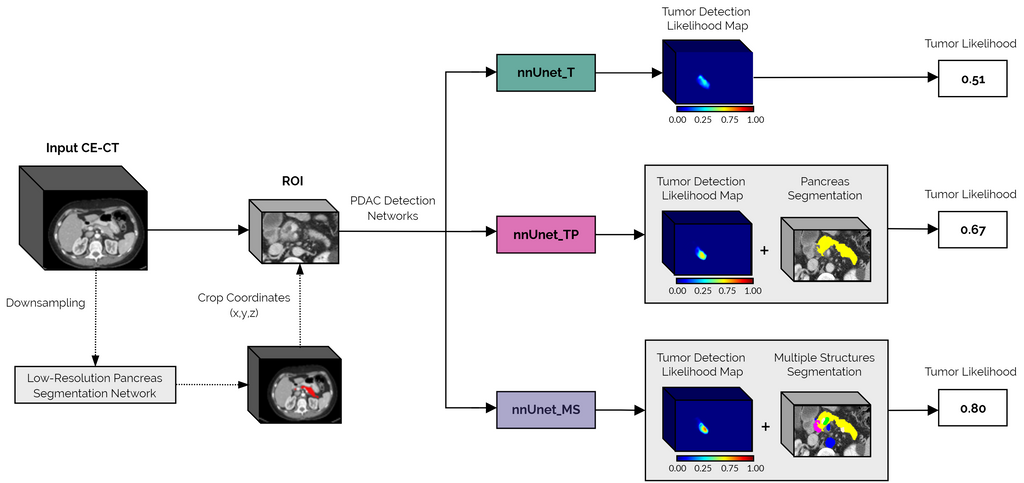New publication on Deep Learning for Pancreatic Ductal Adenocarcinoma Detection on Computed Tomography

Pancreatic ductal adenocarcinoma (PDAC) is the most common form of pancreatic cancer, which has the worst prognosis of all cancer diseases worldwide with a 5-year relative survival rate of only 10.8%. Early detection improves prognosis in PDAC, but is challenging as lesions are often small and poorly defined on contrast-enhanced computed tomography scans. Deep learning can facilitate PDAC diagnosis; however, current models still fail to identify small (<2 cm) lesions.
In this paper, titled “Fully Automatic Deep Learning Framework for Pancreatic Ductal Adenocarcinoma Detection on Computed Tomography”, Natália Alves, Megan Schuurmans, Geke Litjens, Joeran Bosma, John Hermans, and Henkjan Huisman develop a completely automatic deep-learning pipeline using the state-of-the-art nnUnet to detect and localize PDAC lesions in contrast-enhanced abdominal computed tomography scans, with a focus on small lesions.
This study is the first to build a fully automatic pipeline for PDAC diagnosis and localization on CT and to validate it in an external, publicly available dataset. Furthermore, the authors investigate the impact of adding information regarding several pancreas surrounding anatomical structures, which are relevant to clinical PDAC diagnosis but have been left out of deep-lerning based approaches so far.
The results show that deep learning can detect PDAC lesions on CT scans, even in complex (small and isodense) cases, and benefits from additional anatomical information.
This work has been accepted for publication in Cancers' special issue on Pancreatic Cancer: Pathogenesis, Early Diagnosis, and Management for Improved Survival. The manuscript is now online and open access and can be found here.
This research was performed in the context of the European project PANCAIM, which aims to combine radiology, pathology, and genomics with artificial intelligence to advance pancreatic cancer care.
← Back to overview